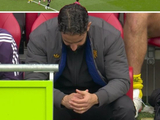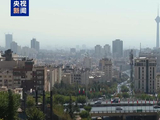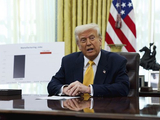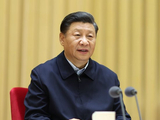US-China Relations; Manchester United's Struggles; Iran Sanctions; European Defense Discord; Ding Xinxin's Story

Geopolitical and Economic Dynamics: US-China Relations and China's Domestic Challenges
Recent events highlight the intricate dynamics of US-China relations and China's domestic economic challenges, as reflected in various publications.
Foreign Ministry of China reports on Premier Li Qiang's return to Beijing after attending the 80th United Nations General Assembly session, emphasizing diplomatic engagements. This underscores China's active participation in global forums, reinforcing its international presence.
Meanwhile, United Daily News discusses the ongoing US-China tariff negotiations, forecasting a potential meeting between US President Joe Biden and Chinese President Xi Jinping at the APEC summit. Experts suggest that while preliminary agreements may ease tensions, lasting stability remains uncertain. The article suggests that the true strategic engagement will occur when Biden visits China, reflecting a cautious optimism about future relations.
On the domestic front, Liberty Times provides a critical analysis of China's industrial policy, highlighting the pitfalls of subsidies and overcapacity. The article argues that China's policy approach is leading to economic distortions, with significant sectors like electric vehicles suffering from inefficiencies and market saturation. It also points out that China's ambitious goals in key technologies might not yield the desired outcomes due to systemic issues.
These developments indicate varied perspectives on China's international and domestic strategies. The Foreign Ministry focuses on diplomatic success, while United Daily News offers a balanced view of potential US-China negotiations, and Liberty Times critiques internal economic policies. Together, these narratives paint a comprehensive picture of China's complex position on the global stage and its internal economic challenges.
Analyzing Manchester United's Challenging Start to the Premier League Season
Recent events show Manchester United's struggle in the current Premier League season, as highlighted by Sina. The team has had a challenging start, reminiscent of their worst opening record in the club's history. After a 1-3 defeat to Brighton, Manchester United has accumulated only seven points over six matches, repeating a poor start from the previous season. This performance raises concerns about their consistency and potential for the rest of the season.
These developments indicate a pattern of underperformance, as noted in another Sina article, which details the 1-3 loss to Brighton, emphasizing key moments such as Marcus Rashford's unsuccessful attempts and the team's defensive vulnerabilities. The article sheds light on the crucial mistakes that led to the defeat, including missed opportunities and defensive lapses. This narrative suggests that internal adjustments are necessary for Manchester United to improve their standings.
It appears that both articles from Sina focus on Manchester United's shortcomings and the urgency to address tactical and player performance issues. By highlighting specific matches and historical comparisons, the publications intend to provide a comprehensive view of the team's current challenges. These insights aim to inform readers about the strategic considerations Manchester United must take to recover in the league.
Global Tensions and Sanctions: The Iran Dilemma
The first article from Radio France Internationale (RFI) provides an audio segment, but unfortunately lacks content details. It emphasizes the logistical aspects of broadcasting rather than delving into the thematic issues at hand.
However, the second article from RFI offers a comprehensive analysis of the impending reactivation of sanctions against Iran. It highlights the fracturing diplomatic efforts surrounding Iran's nuclear issue, which appear to have reached an impasse. The article notes that unless unexpected reversals occur, Iran will face renewed sanctions that were previously suspended under the 2015 nuclear agreement.
This narrative underscores the increasing tension between Iran and Western nations, particularly the U.S., which has already reimposed its sanctions. The complexities are further compounded by the positions of China and Russia, both permanent members of the UN Security Council, whose adherence to the sanctions remains uncertain. The article delves into the potential economic repercussions for Iran, outlining how sanctions could cripple its economy by restricting its regular weapons trade and nuclear-related activities.
Revealing the geopolitical intricacies, the article describes the diplomatic discord within the UN Security Council, where only four out of fifteen members supported a six-month extension proposal to delay sanctions. This suggests a significant division among global powers regarding the handling of Iran's nuclear ambitions.
The narrative from RFI highlights the geopolitical chess game in play, with potential implications for global security and economic stability. It paints a picture of an international community grappling with divergent strategies on how to manage Iran's nuclear pursuits, against a backdrop of strained U.S.-China-Russia relations. This analysis provides a lens through which the broader geopolitical tensions can be understood, indicating a possible escalation in global diplomatic conflicts.
European Sixth-Generation Fighter Jet Project: Discord Between France and Germany
The European Future Combat Air System (FCAS) project, a collaboration between France, Germany, and Spain, is facing significant challenges as reported by multiple sources. Xinhua highlights the tensions between France and Germany, focusing on Germany's dissatisfaction with France's Dassault Aviation demanding more decision-making power. This disagreement has led Germany to consider advancing the project without French participation if negotiations falter.
Similarly, Sina reports on France's readiness to independently develop the next-generation fighter if consensus cannot be reached. The article underscores the potential collapse of Europe's largest defense project due to ongoing disputes between the involved nations. French officials have expressed confidence in their capability to proceed independently, emphasizing their industrial base and expertise.
These developments indicate a significant rift in European defense cooperation, with both nations preparing for unilateral actions. The news highlights the complexity of multilateral defense projects and the challenges of balancing national interests with collaborative goals. The sources suggest that without resolution, this discord could result in the fragmentation of European defense initiatives, impacting the continent's strategic capabilities.
Exploring the Narrative Surrounding Ding Xinxin's Imprisonment
Recent events highlight a media focus on Ding Xinxin, who was sentenced to 12 years for fraud-related charges. Two articles from Tencent shed light on her life in detention as recounted by a fellow inmate, known as "Pangzi." This narrative provides a glimpse into Ding's character and daily experiences in prison.
The first article, titled "Ding Xinxin Sentenced to 12 Years, Fellow Inmate Pangzi Describes Prison Life Details," paints Ding as a supportive and kind figure. Despite her own legal battles, she is depicted as maintaining a positive demeanor, showing generosity and offering emotional support to Pangzi. The story emphasizes Ding's affinity for reading English books and her detached attitude towards discussing her case, suggesting a level of acceptance of her circumstances.
Similarly, the second article, "Inmate's Self-Narration: The Ding Xinxin I Know," reiterates these themes, portraying Ding as a calm and collected individual who provided guidance and comfort to her fellow inmates. The narrative here also touches upon how Ding helped others with legal advice and personal support, further reinforcing the image of her as a compassionate and insightful person.
These developments indicate a possible intention to humanize Ding Xinxin amidst her legal challenges, perhaps aiming to evoke public empathy or to counter negative perceptions stemming from her conviction. Both articles highlight her personal traits, such as her height, appearance, and intelligence, which serve to build a more relatable and nuanced character profile.
While the articles share similar content, they subtly differ in their narrative focus. The first emphasizes Ding's daily interactions and her impact on those around her, whereas the second delves deeper into her personal backstory and the emotional dynamics within the prison setting. This dual approach provides a comprehensive view of Ding's situation, blending personal anecdotes with broader reflections on her character.
Overall, the news highlights a multifaceted portrayal of Ding Xinxin, suggesting an attempt to offer a balanced perspective that contrasts with the stark reality of her legal sentence. It appears that Tencent's coverage seeks to present a more empathetic and humanized image of Ding, possibly to influence public opinion or to provide a counter-narrative to prevailing judgments.



